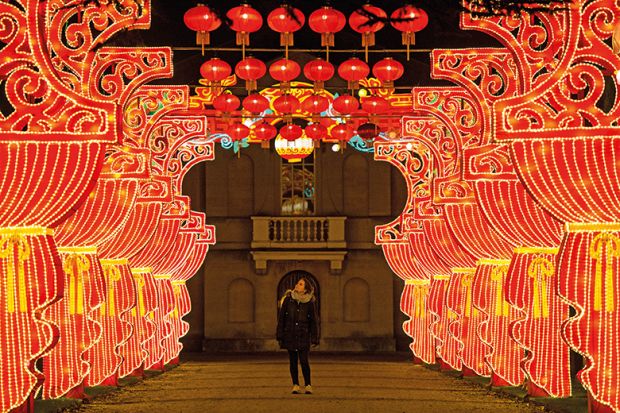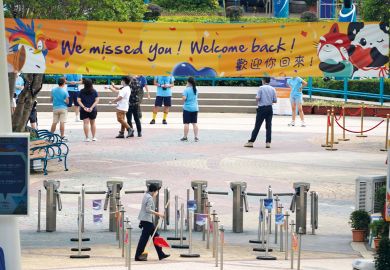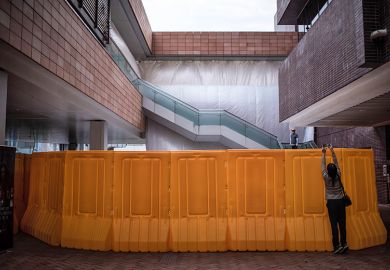A UK university has set up a Hong Kong studies hub to meet an “urgent need” for scholarship on the region and provide support for researchers who are leaving the city or feel unable to return.
It became clear that many Hong Kong academics were moving to the UK in response to the threats posed by the city’s National Security Law when the universities of Surrey and Westminster held a conference for them in late 2022, said Malte Kaeding, senior lecturer in international politics at Surrey.
This triggered the need for “something more permanent and a little protected by a university”, said Dr Kaeding, who has now set up the hub at Surrey.
He said it would seek to support established scholars moving from Hong Kong who were looking for institutional backing in the UK as well as fresh PhD graduates, offering them access to resources and a growing diaspora community.
Campus resource: What can universities do to improve routes into HE for displaced academics?
Initially two research fellows have been appointed: Chung Kim-wah, a former assistant professor of sociology at Hong Kong Polytechnic University who was later deputy executive director of the Hong Kong Public Opinion Research Institute, and Eric Lai, a socio-legal researcher who studies national security and social movements in Hong Kong and China and worked across universities in North America and the UK.
“Dr Chung really had to leave, from one day to another. He had to really flee. Dr Lai was here, and he can’t go back,” Dr Kaeding said.
Dr Chung, who is now based in Surrey, had faced a backlash over polling results which predicted a low turnout ahead of elections and fled Hong Kong overnight in April 2022.
Speaking to Times Higher Education, he recalled being invited to see the police three times in relation to his work and receiving anonymous threats over email.
Of his academic peers who have moved to the UK, Dr Chung said: “They move away from Hong Kong – some because they don’t like the atmosphere there, some just like me are being threatened by the authorities, or some feel that they will face up to some risk if they seek to stay in Hong Kong.”
Dr Lai argued that the National Security Law had made Hong Kong a “chilling environment” for social science research, referring to government criticism of scholars who researched the city’s economy or had ties to overseas scholars holding strong views about China.
Amelia Hadfield, Surrey’s dean for international issues, said there was a “very real need to locate Hong Kong within international relations”, with the topic often subsumed within the much larger field of China studies.
By “slowly building a series of research fellows”, the university wanted to use an interdisciplinary approach to “help capture the liminality of contested concepts in terms of sovereignty and jurisdictions”.
She acknowledged the contentious nature of the debate around Hong Kong. “I think we would prefer to be in the debate, shaping it from the inside,” Professor Hadfield said.
Register to continue
Why register?
- Registration is free and only takes a moment
- Once registered, you can read 3 articles a month
- Sign up for our newsletter
Subscribe
Or subscribe for unlimited access to:
- Unlimited access to news, views, insights & reviews
- Digital editions
- Digital access to THE’s university and college rankings analysis
Already registered or a current subscriber?









